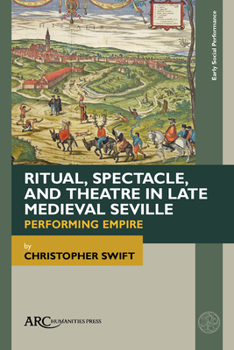Ritual, Spectacle, and Theatre in Late Medieval Seville: Performing Empire
From the fall of Islamic Isbīliya in 1248 to the conquest of the New World, Seville was a nexus of economic and religious power where interconfessional living among Christians, Jews, and Muslims was negotiated on public stages. From out of seemingly irreconcilable ideologies of faith, hybrid performance culture emerged in spectacles of miraculous transformation, disciplinary processionals, and representations of religious identity. Ritual,...
Format:Hardcover
Language:English
ISBN:1802700854
ISBN13:9781802700855
Release Date:October 2023
Publisher:ARC Humanities Press
Length:184 Pages
Customer Reviews
0 rating





